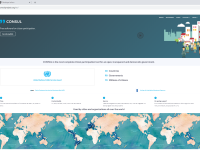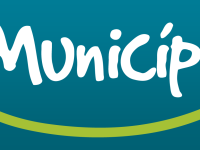The Citizens' Assembly was an exercise in deliberative democracy, placing the citizen at the heart of important legal and policy issues facing Irish society. With the benefit of expert, impartial and factual advice the 100 citizen Members considered five topics. Their conclusions formed the basis of a number of reports and recommendations that were submitted to the Houses of the Oireachtas (the Irish Houses of Parliament) for further debate by our elected representatives.
Innovation Tag Opengov: enablers
As one of Open Government Partnership’s co-founders, Brazil has developed a new co-creation methodology to define the commitments of its National Action Plans (NAP). It has envisaged co-creation workshops with parity participation of experts from government and civil society in chosen themes. The initiative aimed to conciliate the watchful eye of civil society’s representatives and the technical eye of those actors who live the reality of the state administrative machinery to set…
Innovative use of digital and online opportunities has made it easier for people to have a greater say in local decision-making in Scotland. A unique cross-sector collaborative approach was taken to developing digital, with collective solutions and sharing of learning achieved through an open, iterative and experimental methodology. The Scottish Government encouraged rapid growth of participatory budgeting and digital, in line with the ambitions of open government and strengthening democracy.
CONSUL is an online platform for public participation in decision-making, launched initially by the Madrid city council and subsequently adopted by several governments all over the world. The platform benefits from its open source code, making it free for any government, or CSO, to make use of it and propose improvements. CONSUL is designed for citizens to voice their concerns and participate through the development of proposals, votes for new laws, debates, crowd laws, participatory budgets…
In 2015, a constitutional reform on transparency allowed the INAI to propose a specific set of actions to adopt and institutionalize open government principles in Mexico. Thus, it designed a comprehensive strategy that mainly consisted of the implementation of provisions, methodologies and public policies to guide and articulate the design, implementation, and operation of open government in public institutions, the three levels of government and the three branches of government nationwide.
Proactive Transparency initiative in Bosnia and Herzegovina is the first policy to address proactive disclosure of government information, co-created by the public institutions and civil society organisations. The result of of this collaboration was a policy document, 38 defined standard pieces of information, research conducted by civil society and improvement of government transparency.
My Municipality (Meu Município) a free public portal that organizes and makes available the financial performance of 90% of the Brazilian cities in a intuitive, user-friendly way. It is used for citizens to understand, monitor and compare how Brazilian municipalities collect and spend our money. My Municipality is also designed for public managers in their analysis and decision-making about the city's directions.
The Electronic System for the Citizen Information Service (e-SIC) was developed to enable, in a cost-effective and efficient way, the reception and processing of access to information requests. The system facilitated the implementation of the Access to Information Act and serves as an essential tool for monitoring its implementation.
Case Study
Implementation of the Access to Information Act, Electronic System for the Citizen Information…
Law nº 12.527/2011, the Access to Information Act, has come to materialize, in practice, transparency mechanisms of public information predicted in the 1988 Brazilian Federal Constitution, and in other several international treaties.
The Law consolidates the understanding that public information is owned by society, not by public bodies that produce or keep it.
Reviewing and improving mechanisms of various processes, such as increasing transparency and knowledge management, were implemented.



